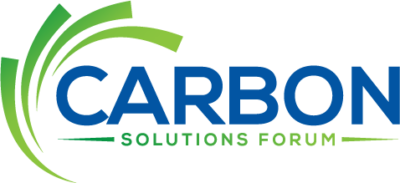Energy Dialogues LLC met with Sherrie Merrow at Encana to discuss Encana’s views on the natural gas sector…
…where the market is heading and what the opportunities are ahead.
Monika Simoes, Energy Dialogues: Technology has been a key driver in accelerating the shale gas boom in the US and globally. What do you foresee as future drivers in the natural gas sector? What breakthroughs yet to come have the ability to continue transforming the sector in North America and also globally?
Sherrie Merrow, Encana: Technology certainly is the key driver as you say, in particular hydraulic fracturing. These technologies have been around for a very long time, but have been applied in new ways and are producing the tremendous amounts of shale gas we have now. These techniques are also used in the oil industry and have enabled its resurgence in the U.S. It is fascinating to see the predictions turn from oil and gas being on a steep decline to now being abundant resources.
I see the three key drivers in the natural gas sector as being technology, economics and education. Continuously improving technology will allow the sector to produce more natural gas in environmentally and economically beneficial ways. We find the ongoing divergence of the price of oil and gas, causing natural gas to be much more economic. This applies to all uses of natural gas including power generation, transportation and industrial applications, and is evidenced by the increased use of natural gas in each of these areas.
Education as a key driver will help to let people know just what the opportunities are for our economy and our people in using more natural gas. We also need to move away from an emotional reaction to the extraction of natural gas to a scientific reaction. We need to find a level-playing field to measure fuels one against the other and get to a point where we recognize that each fuel has its detractions and advantages and know the best ways to manage both.
Monika Simoes, Energy Dialogues: Talking about the economic opportunity, can you tell us more about what you see as the important economic impacts and advantages of the natural gas boom in North America?
Sherrie Merrow, Encana: There have been studies conducted on the potential for natural gas and oil to really change the trade deficit and to help our economy improve, and in fact we see some of this happening today. I would add to the national perspective, that there is also the personal benefit at the pump in the transportation sector and power generation rates that we pay as we lower the cost of producing natural gas.
Monika Simoes, Energy Dialogues: You do a lot of work on the transportation side, where do you see the biggest potential for natural gas use and why is gas such a great proposition for the transportation sector?
Sherrie Merrow, Encana: The largest opportunity if you look sector by sector is the passenger vehicle market, representing more than 40 billion cubic feet per day that we use in gasoline and diesel for our passenger cars. If we were able to replace even 10%, that is a material incremental growth for the natural gas industry and provides significant environmental benefits. While the biggest opportunity is in the passenger vehicle market, the medium and heavy-duty sector is the fastest growing. Recent statistics show that 1 in every 4 transit buses is run on natural gas, and that number is 1 out of 2 for refuse trucks. If you add to this package trucks and 18-wheelers, you would realize another 15 billion cubic feet per day in this market; one that is established, commercially viable with many vehicle and engine options and where fueling is in place. Rail, marine, mining, and industrial and the drilling and completion industry provide other opportunities. Cost is the driver certainly for the heavy and medium duty markets, with environmental benefits as an added attraction. As diesel fuel fluctuates around $4.00 per gallon, the reduced cost for natural gas can produce as much as a 40% savings in fuel costs. To summarize, the passenger vehicle market is technically the biggest opportunity, however heavy duty is a more realistic opportunity in the short-term given the cost benefit.
Monika Simoes, Energy Dialogues: Where do you see the biggest challenges for natural gas to gain market share in the transportation sector and how can those challenges be met?
Sherrie Merrow, Encana: There are good opportunities and we are realizing successes in heavy and medium duty markets, but light duty is where we are lacking. We have commercially available bi-fuel pick-ups and the Honda Civic, and there are many conversion options as well, but the key issue is fueling infrastructure. One key driver to increase the passenger vehicle market is a cost effective home-fueling device. Currently there are available models that are relatively expensive, but GE and others are working on a variety of options for home fueling. Natural gas fueling stations are growing in numbers with several companies establishing roadmaps for their planned stations. Many states have provided incentives and grant programs for stations that are also helping to grow the network. Until we have more station coverage the best option for a natural gas vehicle is a bi-fuel which runs on compressed natural gas or gasoline.
Monika Simoes, Energy Dialogues: There seems to be an ongoing debate around natural gas as the future fuel or a bridge fuel? How does Encana see the importance of natural gas evolve?
Sherrie Merrow, Encana: There is a fundamental assumption in that statement that we want to get away from natural gas, which I believe many would consider unwise. Many groups in this country and globally do indeed want to do that, but it will take time. I would argue that the bridge is a very long bridge. It certainly is a bridge that can lead to the production of hydrogen from natural gas, but we are decades away from having hydrogen as a commercially available commodity. Natural gas may be a bridge to some at some indeterminable point in the future, but it also is here today and usable to improve the environment and fuel costs now.
Monika Simoes, Energy Dialogues: Encana is participating in the North American Gas Forum – where do you see the key benefits of the forum to Encana and on a broader scale how can the North American Gas Forum contribute to advancing the natural gas sector and emphasizing important industry dialogue?
Sherrie Merrow, Encana: The key benefit to Encana is to broaden our understanding of what peers and others are thinking and doing, to gain information, knowledge and contacts that let us all work together better. It is also my opportunity to share Encana’s experience and concerns. In my work with the NGV America Infrastructure & State Government Affairs Committee we are finding a lot of regulations that are in place and are not helping natural gas to move forward on various fronts and I think this is a forum to help better understand how we handle those issues. This flows into the question of how the North American Gas Forum can contribute to advancing the natural gas sector; there is a lot of misinformation that can be helped with education and information coming through the Forum.






